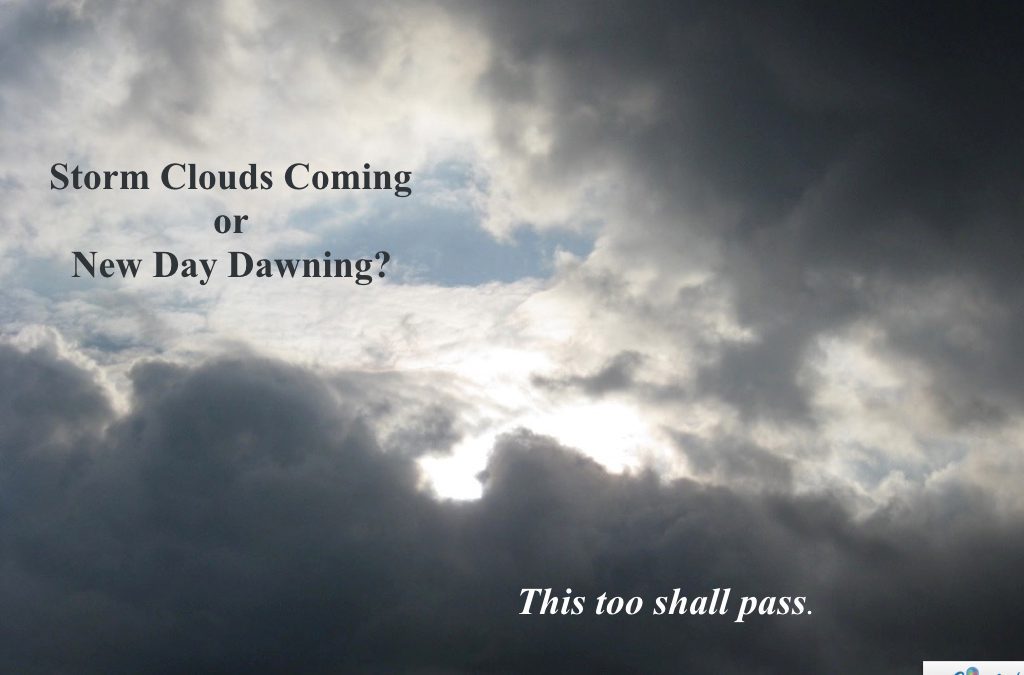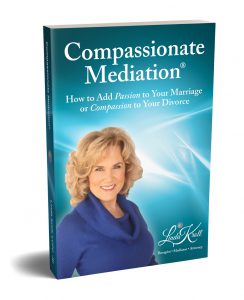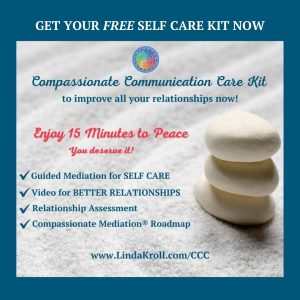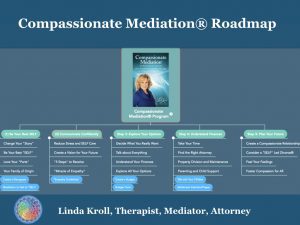Many marriages end because one or both parties don't know they have other options. You can take the time to learn Compassionate Communication and create something new and better together — whatever the form will take.
Often there is one partner who believes that it is “too late” to save the relationship. It is never too late!
Sometimes, one party feels neglected or ignored, as their partner focused on a career or the children. Hurt can manifest as anger or withdrawal, and finally becomes a wall that seems insurmountable.
However, there can be reason for hope even in the face of quiet (or vocal) desperation.
If one person in a relationship is willing to work to save it, a new union can emerge. Perhaps your “first marriage” is over. It’s not about fixing it or settling for what you have, but beginning to create a new relationship that meets both your needs. Who are you now? What is important to you both? And are you willing and able to give the other what you each want and need?”
“I can’t get his attention. I’ve told him how unhappy I am, and he doesn’t seem to notice or care.”
One party might offer love in the form of financial contribution and support. It can be the currency of their caring. However, the other partner may need more time together, shared conversations, attention and affection. The manner in which those needs are expressed may sound needy, whining, or demanding. Learning how to express your needs without judgment or blame is a skill that can be learned. It begins with “I” messages, and includes words like “sad, hurt, rejected and abandoned”. You might find yourself more sad than angry, but being more vulnerable instead of judgmental will help to break the cycle of arguments and distancing.
“I try so hard to please her and she never seems happy.”
After a decade or two (or more) of working long hours, one party may feel the brunt of the financial responsibility for the family. Often they become burned out, overwhelmed with the duties, but afraid to ask for help. They also feel “sad, hurt, and abandoned” when their spouses feel dissatisfied with the life that their work has provided. Then they build walls, too, walls to block out the criticism and anger that is coming their way. They may not have the tools to confront the issues in a healthy way, so they may work more or find other activities to keep them busy and out of harm’s way.
Where there’s life, there’s hope.
Separation or divorce is often contemplated as the solution, and in some cases, that may seem like the only way out. However, learning how to communicate with empathy and compassion can heal wounds that have been festering for years. And if the relationship is meant to end, you can both do the work you need to let go with kindness. Even if the relationship is over, and you are already divorced, you can still create a better method of communication. All that is needed is one willing participant.
“I’ve already done all the work. I don’t want to do any more.”
“I don’t want to be compassionate when I’m so hurt and angry.”
Take the time you need to learn how to communicate with compassion. And the compassion begins with your SELF. It takes a lot of energy and effort to maintain the barricades you might have erected around your heart. Allow yourself to tear down your barriers, put down your weapons, express your sadness, and begin to ask for what you need as you set appropriate boundaries.
As you learn to listen to all parts of yourself – the sad, scared, hurt, angry – you can speak FOR them, and not FROM them, which makes the dialogue much more heart-centered. And as you learn to be compassionate towards your own feelings, you begin to manifest that compassion towards your partner. It’s in that field of empathy that miracles can happen.
“We’ve tried counseling and it didn’t work. I don’t want to do anymore.”
You can always get divorced, but if you got divorced tomorrow, you’d still carry the burden of all those unexpressed feelings. You might meet someone else who will trigger you in just the same way your partner does. You won’t be “wasting time” to allow yourself one more attempt to create something new with the other parent of your children. You can also heal wounds that pre-dated the marriage, which you might be carrying from your family of origin.
”What can I do now?”
Give yourself the gift of Compassionate Mediation®. It just takes one person to begin to improve a relationship.
The only person you can ever change is yourself. If your partner is not ready or willing to participate, begin the process on your own. There is no need to suffer. Help is available. The tools you will learn can enhance the quality of your life and improve all your relationships. You and your family are worth it.
It's never too late to create something new! I'm here to help!
Please join me in my online Compassionate Mediation Program and let me help you create the relationship you desire and deserve.



